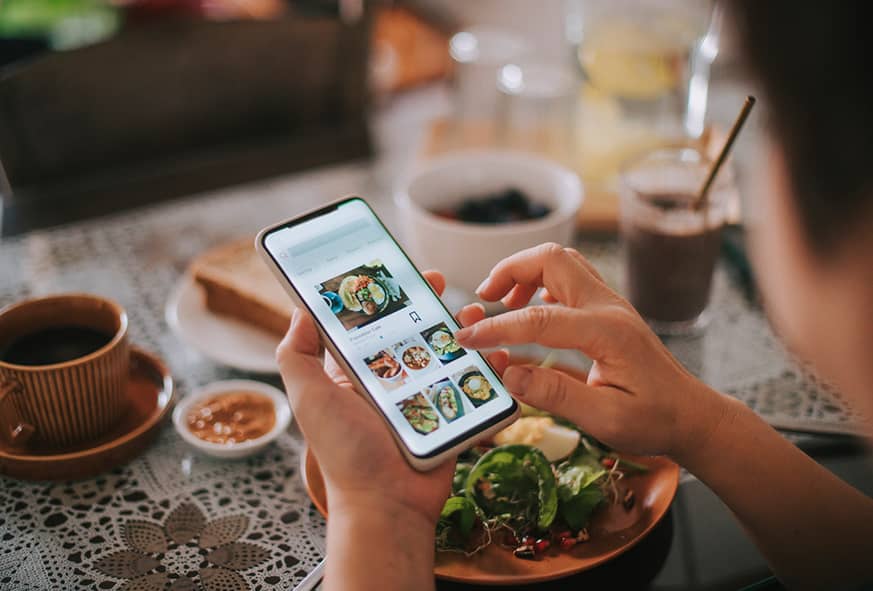Smartphones have become an integral part of our lives, revolutionizing communication and beyond. They connect us with loved ones, provide instant access to information, facilitate online transactions, and offer countless productivity tools. From staying informed to managing daily tasks, smartphones have transformed the way we navigate and thrive in the modern world.
Nevertheless, our constant attachment to these devices has given rise to a new phenomenon called nomophobia, the fear of being without a mobile phone. Nomophobia can lead to various negative effects on our mental and physical well-being. But fear not! In this article, we will explore effective strategies and treatments to help you overcome nomophobia and regain control over your life.
What is nomophobia?
Nomophobia, derived from the phrase “no-mobile-phone phobia,” refers to the anxiety or fear that arises from being without a mobile device or being unable to use it. It’s a condition that affects millions of people worldwide, and its prevalence continues to rise as smartphones become more ingrained in our daily routines.
The Impact of Nomophobia
Nomophobia can have a significant impact on our lives, affecting our productivity, relationships, and overall well-being. People with nomophobia may experience symptoms such as restlessness, irritability, difficulty concentrating, and heightened anxiety when separated from their smartphones.
To effectively treat nomophobia, it’s crucial to recognize the signs and symptoms. If you find yourself constantly checking your phone, experiencing anxiety or panic when your battery is low, or feeling a compulsive need to have your device nearby at all times, you may be dealing with nomophobia.
Tips to break free from nomophobia
Treating nomophobia requires a multifaceted approach that addresses both the physical and psychological aspects of smartphone addiction. Early intervention is crucial to prevent the long-term effects of this technology-related disorder.
Here are some effective strategies to help you break free from the grip of your smartphone:
1) Set Boundaries: Establish designated “phone-free” times or areas in your daily routine. For example, make mealtime or before bedtime sacred, without the presence of your smartphone.Begin by designating short periods of time each day as “tech-free.” Gradually increase the duration as you become more comfortable.
2) Practice Mindfulness: Engage in activities that promote mindfulness, such as meditation, yoga, or deep breathing exercises. These practices can help you become more aware of your smartphone usage patterns and develop a healthier relationship with your device.
3) Engage in Offline Activities: Rediscover the joys of offline activities, such as reading a book, pursuing a hobby, or spending quality time with loved ones. Distract yourself from the constant need to check your phone.
4) Seeking Support: Don’t be afraid to reach out for support when dealing with nomophobia. Talking to friends, family, or a therapist can provide you with guidance, understanding, and accountability as you work towards overcoming smartphone addiction.
Smartphone Addiction Remedies
In addition to self-help techniques, there are various smartphone addiction remedies available that can assist you in your journey to break free from nomophobia:
- Digital Well-being Apps: Utilize apps specifically designed to help you monitor and manage your smartphone usage. These apps can track screen time, set limits, and provide notifications to help you maintain a healthier relationship with your device.
- Supportive Communities: Join online communities or support groups focused on digital detox and overcoming smartphone addiction. Interacting with like-minded individuals can provide encouragement and motivation during your recovery process.
Overcoming nomophobia: Creating a Healthy Relationship with Your Phone
Ultimately, the goal is to establish a healthy and balanced relationship with your smartphone. Here are some additional tips to help you maintain a healthier approach to technology:
Practice Gratitude: Be mindful of the benefits and conveniences that technology brings to your life, but also recognize the value of unplugging and being present in the moment.
Prioritize Self-Care: Take care of your physical and mental well-being by incorporating regular exercise, quality sleep, and social interactions into your routine. Building a fulfilling life outside of your smartphone can help reduce dependence.
Embracing a Nomophobia-Free Lifestyle
Breaking free from nomophobia is a journey that requires patience, persistence, and self-reflection. By implementing the strategies and techniques discussed in this article, you can gradually overcome smartphone addiction and embrace a more balanced and fulfilling lifestyle.
Nomophobia may feel overwhelming, but with determination and the right tools, you can regain control over your smartphone usage. Remember, it’s about finding a healthy balance between the benefits of technology and the importance of being present in the real world. By implementing these strategies and treatments, you can break free from nomophobia and live a happier, more connected life.

